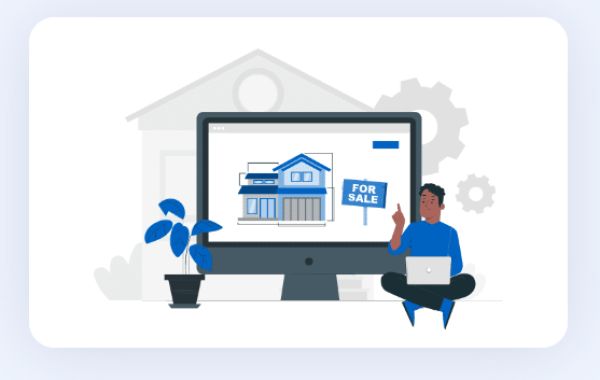Introduction
In today's digital era, the real estate industry has embraced technology to enhance efficiency and improve user experience. Real estate apps have become increasingly popular, allowing users to search for properties, view virtual tours, connect with agents, and more. However, one crucial consideration before embarking on real estate app development is the cost involved. In this article, we will delve into the various factors that influence the real estate app development cost and provide you with a comprehensive guide to help you make informed decisions.
Factors Influencing Real Estate App Development Cost
1. App Platform
The choice of app platform significantly impacts the development cost. You can opt for either iOS, Android, or both platforms. Developing for both platforms will naturally increase the overall cost due to the additional resources and development time required. However, targeting both platforms ensures a wider reach and access to a larger user base.
2. App Design
The design of your real estate app plays a crucial role in its success. A well-designed and user-friendly interface will attract and retain users. The cost of app design depends on various factors, including the complexity of the design, the number of screens, and the need for custom graphics and animations. Investing in a visually appealing and intuitive design can positively impact user engagement and satisfaction.
3. Features and Functionality
The features and functionality you want to incorporate into your real estate app will also affect the development cost. Basic features such as property search, listings, and contact forms are typically included in most real estate apps. However, if you wish to offer advanced features like virtual tours, mortgage calculators, and real-time notifications, the development cost will increase accordingly. It's essential to prioritize the features that align with your target audience's needs and expectations.
4. Integration with APIs
Integrating your real estate app with third-party APIs can enhance its functionality and provide users with valuable information. For example, integrating with mapping APIs can enable users to view properties on a map and explore the surrounding area. However, the integration process requires additional development effort and may incur extra costs, depending on the complexity and number of APIs involved.
5. Backend Development
The backend of your real estate app is responsible for managing data, user authentication, and other essential functionalities. The complexity of the backend architecture and the required server infrastructure can influence the development cost. If you anticipate a large user base and heavy data traffic, investing in scalable backend infrastructure becomes crucial, which may incur additional costs.
6. Testing and Quality Assurance
Thorough testing and quality assurance are vital to ensure your real estate app functions flawlessly and provides a seamless user experience. The cost of testing and quality assurance activities should be factored into your overall development budget. Testing should encompass functionality testing, usability testing, performance testing, and security testing to identify and rectify any issues before launching the app.
FAQs (Frequently Asked Questions)
1. What is the average cost of real estate app development?
The cost of real estate app development can vary significantly depending on several factors, including the app platform, design complexity, features, and integration requirements. On average, the cost can range from $20,000 to $100,000 or more.
2. How long does it take to develop a real estate app?
The development timeline for a real estate app depends on its complexity and the resources allocated to the project. Typically, it can take anywhere from three to nine months to develop a fully functional and feature-rich real estate app.
3. Is it possible to develop a real estate app on a limited budget?
Yes, it is possible to develop a real estate app on a limited budget. However, it's important to prioritize the essential features and functionalities that align with your target audience's needs. By focusing on the core features initially and gradually adding more advanced features as your budget allows, you can create a functional and cost-effective real estate app.
4. Are there ongoing maintenance costs for a real estate app?
Yes, there are ongoing maintenance costs associated with a real estate app. After the initial development phase, you will need to allocate resources for regular updates, bug fixes, security patches, and performance optimization. It's essential to consider these maintenance costs in your overall budget to ensure the long-term success and smooth operation of your app.
5. Can I hire freelancers for real estate app development to reduce costs?
Yes, hiring freelancers can be a cost-effective option for real estate app development. Freelancers often offer competitive rates compared to established development agencies. However, it's important to thoroughly vet freelancers, assess their skills and experience, and ensure effective communication throughout the development process to ensure a successful outcome.
6. How can I estimate the cost of developing my real estate app?
To estimate the cost of developing your real estate app, it's recommended to consult with experienced app developers or development agencies. They can evaluate your specific requirements, assess the complexity of the project, and provide you with a detailed cost estimate based on industry standards and their expertise.
Conclusion
Developing a real estate app involves careful consideration of various factors that influence the overall cost. By understanding the key elements that contribute to real estate app development cost, such as app platform, design, features, integration, backend development, and testing, you can make informed decisions and allocate resources effectively. Remember, a well-designed and feature-rich real estate app can provide immense value to users and help you establish a strong presence in the real estate market.
By aligning your budget with your app development goals and working with experienced professionals, you can create a high-quality real estate app that delivers a seamless user experience and drives business growth.








